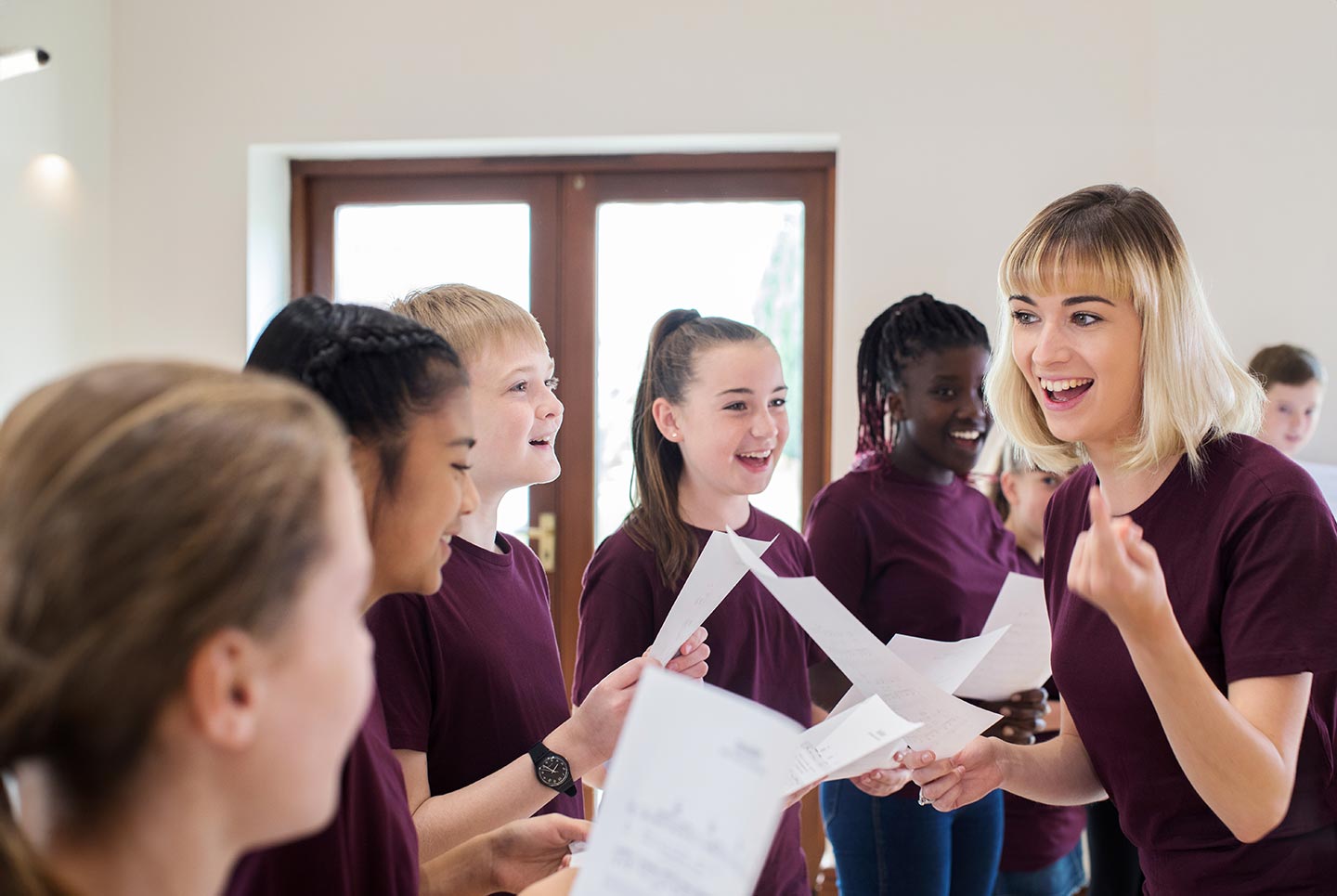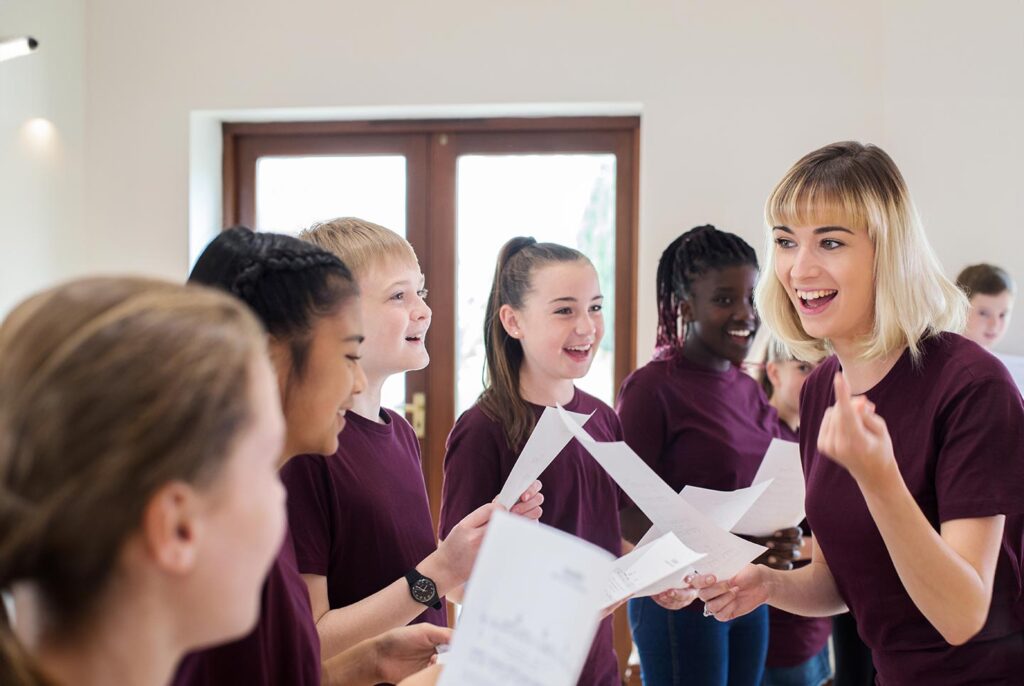When was the last time you reached out to another club or organisation? As a club owner, it’s easy – and understandable – to be protective of your business. But by putting up communication barriers, you could be missing out on opportunities to collaborate, gain new knowledge, and even generate more income.
In this article, we expand on Alex Row’s recent Facebook live in the LoveGymnastics Community. We’ll look at why barriers might exist in the first place, and give you tips for breaking them down.
How communication barriers can occur
When we talk about barriers, we’re not referring to physical brick walls but perceived barriers to communication. And we put these up for all sorts of reasons…
Rivalries between teams
In grassroots football, the recent league changes have resulted in clubs playing against teams closer to home. It’s natural for rivalries between teams to form, and these can lead to healthy competition on the pitch. But it’s important to keep these in check, especially when the competition may also be the club you share your pitch or training facilities with.
People moving between clubs
Whether it’s a member, athlete, volunteer or coach, when someone leaves your club for another, it can be frustrating. Especially when you’ve spent time and energy developing that person’s skills. But letting these frustrations develop into more deep-seated resentment can harm any potential opportunities for future collaboration.
Lack of communication
The easiest way for communication barriers to develop is a simple lack of communication. There may be a local business you think would be the perfect sponsor for your club. But you haven’t contacted them as you’re worried they won’t want to speak to you.
Sound familiar? Sometimes, there isn’t a reason why someone hasn’t reached out to you yet. They might simply think you don’t want to speak to them. In this case, you need to be the one to make the first move.
How to break down barriers
Whether you’re involved with grassroots sports or another type of organisation, you’re part of a wider, passionate community. Assumed barriers stop us from collaborating and supporting each other. Which, in recent times, has become even more important to do.
Here are a few things you can do to break down the barriers that might be holding you back…
Develop your communication skills
Let’s begin with the basics. Effective communication skills are valuable in all areas of life, not just when running a club or business. But when you’re in an environment where you need to inspire, delegate, negotiate and collaborate on a regular basis, being a good communicator really helps.
Sport England’s new website, Buddle has some top tips, and well as downloadable guides on delegation and negotiation – learn more about effective communication here.
Open your doors
Open days are a great way to showcase your club / facilities to potential members and parents. But they are also an opportunity to build relationships with other clubs and organisations that you might want to partner with.
Before your next open day, make a list of potential partners then personally invite them to come see your facility. Greet them on the day and invite them to ask questions about your club. By being transparent, you’re opening up channels of communication that could be beneficial for everyone.
Support each other
Ground sharing is common in grassroots football. If you’re renting leisure facilities, it’s highly likely you’re sharing them with other sports clubs. Good relationship management is key to ensure the smooth running of all your clubs. However, going the extra mile could help further break down barriers.
Think about what support you could offer. It could be things like:
- Help with pitch maintenance
- Running the bar or tea hut on game day
- Helping out on the gate
Of course, this doesn’t just apply to grassroots football. In the gymnastics world, for example, smaller clubs might not have enough athletes to put together a festival team. If that’s the case, you could join forces and train out of each of your clubs.
Join a community
Being able to access knowledge, best practice and advice from people who understand your sport or business / sector can be invaluable. This is one of the reasons why we set up the LoveAdmin Community Groups on Facebook.
We wanted to bring together like-minded people who understood each other’s challenges – beyond just admin. This proved vital during the pandemic when clubs were having to adapt to a new way of working, as well as react to official advice.
Debi McPhee, owner of JUMP Gymnastics Club, says: “The LoveAdmin Community has really kept us going over the lockdown period and allowed us to network with new and fabulous club owners and managers as well as the LoveAdmin team too.”
Facebook is a great place to start if you’re looking to join a community. You can find a list of the LoveAdmin Community Groups here.
Celebrate success
As we’ve already mentioned, people moving to another club can be challenging. But rather than feel resentful, celebrate their success instead. It’s likely their experience with you gave them the tools, drive and knowledge they needed.
Parting on good terms also gives you a valuable contact at another organisation, which may be useful in the future. The next time someone leaves your club, send a friendly ‘well done’ email or make a more public gesture with a congratulatory post on social media.
Recognise what’s best for your members
It can be the case that moving between clubs is beneficial to members. Emily Redding, says: “In highly competitive situations, where success is often perceived as number of medals won, or results in an exam session, it can be easy to take the loss of a student personally. But what is the wider goal?”
In the world of dance, a well rounded dance student should gain exposure to many different styles and teachers, and not every club can offer that capacity. Emily recommends you make sure members know that when they join, they’re joining a community.
She explains: “Progression can be measured by exam results, but that doesn’t emphasise team building, relationship skills and personal goals. In the long run, these skills are much more valuable, and employable. If you create a strong sense of identity and worth within your club, this will open more doors.”
Final tips
Breaking down barriers is a two-way street. If the other party doesn’t want to engage, you need to move on and avoid any negative sentiment. There may be a number of reasons why they don’t want to work with you right now. By staying amicable and positive, you’re leaving the door open for them in the future.
Here are a few final tips to bear in mind when breaking down barriers:
- Sometimes all it takes is being the first to make contact. Get that conversation going and you may be surprised where it leads
- Collaboration doesn’t have to take place in a physical space. Social media is a great place to connect with other clubs and organisations. Perhaps you could work together on a campaign around a specific event
- Remember that no one is bigger than the overall cause. By working together, you can all achieve your goals
This article was based on a live video hosted by Alex Row, LoveGymnastics Community Ambassador. For more tips, advice and insight from the experts – sent straight to your inbox – sign up to our newsletter, below.
















